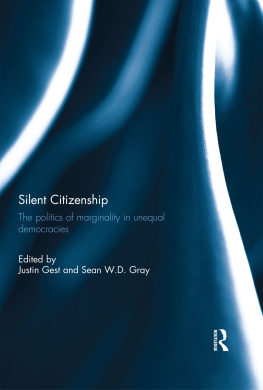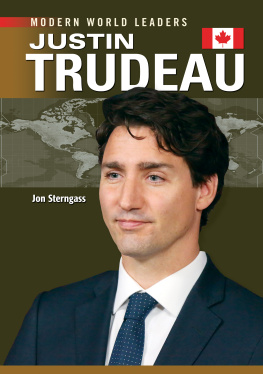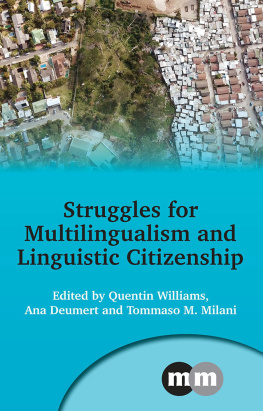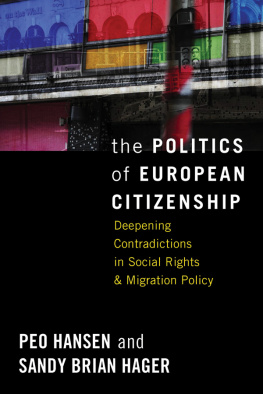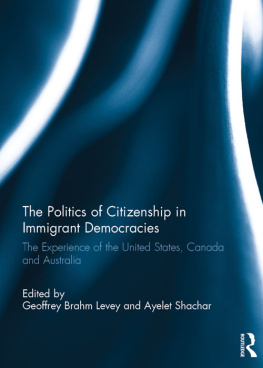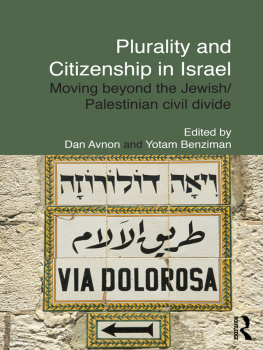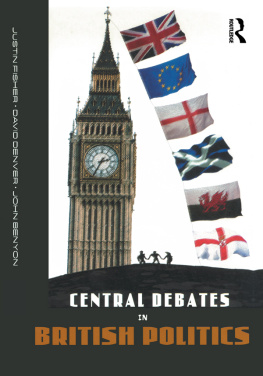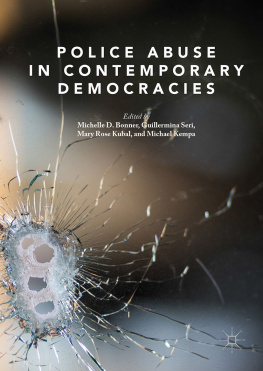Silent Citizenship
What does silent citizenship mean in a democracy? With levels of economic and political inequality on the rise across the developed democracies, citizens are becoming more disengaged from their neighbourhoods and communities, more distrustful of politicians and political parties, more sceptical of government goods and services, and less interested in voicing their frustrations in public or at the ballot box. The result is a growing number of silent citizens who seem disconnected from democratic politics who are unaware of political issues, lack knowledge about public affairs, do not debate, deliberate, or take action, and most fundamentally, do not vote. Yet, although silent citizenship can and does indicate deficits of democracy, research suggests that these deficits are not the only reason citizens may have for remaining silent in democratic life. Silence may also reflect an active and engaged response to politics under highly unequal conditions. What is missing is a full accounting of the problems and possibilities for democracy that silent citizenship represents. Bringing together leading scholars in political science and democratic theory, this book provides a valuable exploration of the changing nature and form of silent citizenship in developed democracies today.
This title was previously published as a special issue of Citizenship Studies.
Justin Gest is Assistant Professor of Public Policy at George Mason University, Fairfax, USA. His research examines minority political behavior and comparative immigration policy. He is the author of Apart: Alienated and Engaged Muslims in the West (2010) and The New Minority: White Working Class Politics in an Era of Immigration and Inequality (2016).
Sean W.D. Gray is SSHRC Postdoctoral Fellow at the Ash Center for Democratic Governance and Innovation, Harvard University, Cambridge, USA. His dissertation and current book project, Democracy and Silence, theorizes the conditions under which silence can be a form of political engagement. His research and teaching interests include contemporary democratic theory, theories of the welfare state, deliberation, and new forms of political representation.
Silent Citizenship
What does silent citizenship mean in a democracy? With levels of economic and political inequality on the rise across the developed democracies, citizens are becoming more disengaged from their neighbourhoods and communities, more distrustful of politicians and political parties, more sceptical of government goods and services, and less interested in voicing their frustrations in public or at the ballot box. The result is a growing number of silent citizens who seem disconnected from democratic politics who are unaware of political issues, lack knowledge about public affairs, do not debate, deliberate, or take action, and most fundamentally, do not vote. Yet, although silent citizenship can and does indicate deficits of democracy, research suggests that these deficits are not the only reason citizens may have for remaining silent in democratic life. Silence may also reflect an active and engaged response to politics under highly unequal conditions. What is missing is a full accounting of the problems and possibilities for democracy that silent citizenship represents. Bringing together leading scholars in political science and democratic theory, this book provides a valuable exploration of the changing nature and form of silent citizenship in developed democracies today.
This title was previously published as a special issue of Citizenship Studies.
Justin Gest is Assistant Professor of Public Policy at George Mason University, Fairfax, USA. His research examines minority political behavior and comparative immigration policy. He is the author of Apart: Alienated and Engaged Muslims in the West (2010) and The New Minority: White Working Class Politics in an Era of Immigration and Inequality (2016).
Sean W.D. Gray is SSHRC Postdoctoral Fellow at the Ash Center for Democratic Governance and Innovation, Harvard University, Cambridge, USA. His dissertation and current book project, Democracy and Silence, theorizes the conditions under which silence can be a form of political engagement. His research and teaching interests include contemporary democratic theory, theories of the welfare state, deliberation, and new forms of political representation.
First published 2017
by Routledge
2 Park Square, Milton Park, Abingdon, Oxon, OX14 4RN, UK
and by Routledge
711 Third Avenue, New York, NY 10017, USA
Routledge is an imprint of the Taylor & Francis Group, an informa business
2017 Taylor & Francis
All rights reserved. No part of this book may be reprinted or reproduced or utilised in any form or by any electronic, mechanical, or other means, now known or hereafter invented, including photocopying and recording, or in any information storage or retrieval system, without permission in writing from the publishers.
Trademark notice: Product or corporate names may be trademarks or registered trademarks, and are used only for identification and explanation without intent to infringe.
British Library Cataloguing in Publication Data
A catalogue record for this book is available from the British Library
ISBN 13: 978-1-138-20864-3
Typeset in Times New Roman
by RefineCatch Limited, Bungay, Suffolk
Publishers Note
The publisher accepts responsibility for any inconsistencies that may have arisen during the conversion of this book from journal articles to book chapters, namely the possible inclusion of journal terminology.
Disclaimer
Every effort has been made to contact copyright holders for their permission to reprint material in this book. The publishers would be grateful to hear from any copyright holder who is not here acknowledged and will undertake to rectify any errors or omissions in future editions of this book.
Contents
Citation Information
The chapters in this book were originally published in Citizenship Studies, volume 19, issue 5 (August 2015). When citing this material, please use the original page numbering for each article, as follows:
Editors Introduction
Silent citizenship: the politics of marginality in unequal democracies
Justin Gest and Sean W.D. Gray
Citizenship Studies, volume 19, issue 5 (August 2015), pp. 465473
Chapter 1
Mapping silent citizenship: how democratic theory hears citizens silence and why it matters
Sean W.D. Gray
Citizenship Studies, volume 19, issue 5 (August 2015), pp. 474491
Chapter 2
Solace for the Frustrations of Silent Citizenship: the Case of Epicureanism
Jeffrey Edward Green
Citizenship Studies, volume 19, issue 5 (August 2015), pp. 492506
Chapter 3
Silent citizens: reflections on community, habit, and the silent majority in political life
Bryan S. Turner
Citizenship Studies, volume 19, issue 5 (August 2015), pp. 507519
Chapter 4
Domination, global harms, and the problem of silent citizenship: toward a republican theory of global justice
James Bohman
Citizenship Studies, volume 19, issue 5 (August 2015), pp. 520534
Chapter 5
Pro- and anti-system behavior: a complementary approach to voice and silence in studies of political behavior
Justin Gest
Citizenship Studies, volume 19, issue 5 (August 2015), pp. 535552

